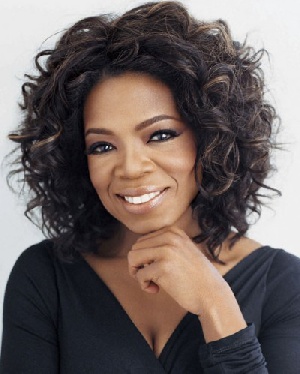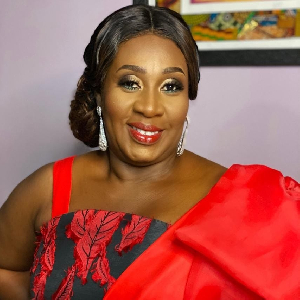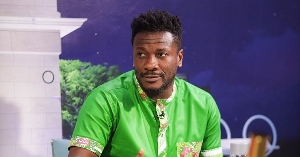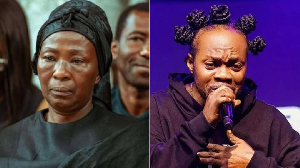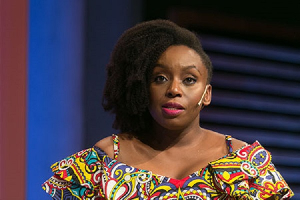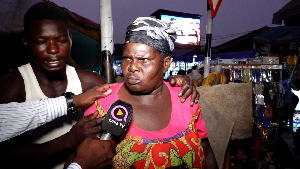The myth of the STRONG BLACK WOMAN (SBW) is so simple and so clear that it is somewhat amazing that we are still bamboozled.
You see, we - being the black women who are the “johns” of this particular scam - think that being an SBW is something to which one should aspire; we feel complimented when we are included in the category of others similarly valorized; and we blame ourselves for any indication that we are falling below the standards of the SBW.
Is this not the most delicious trick ever played on anyone?
The greatest achievement the rest of the world ever achieved was convincing black women that SBW existed, and that our job was to grow up into one. Black women are raised to be SBW in the most exemplary fashion possible, and faithfully to remain one without pause or rest until the grim reaper relieved us of the burdens of our mortality.
It is really terrifyingly, astonishingly and ineffably well-crafted, this myth. Insofar as, so long as we are kept either desiring, or believing ourselves actually to be, Strong Black Women, there is no amount of pure nonsense, abuse, overwork, ingratitude, exploitation, underappreciation, and just plain shit that we will not put up with.
You see, SBW, of course, can make $10 stretch into meals for a week, clothes for everyone, payment of bills, and school fees, etc.,— this is just a well known and, indeed, required characteristic of SBW.
Both Maya Angelou (main picture) and Wangari Maathai (above) are seen by many women as examples of Strong Black Women
SBW are, by nature, ready, nay, eager to work five jobs at a time so as to feed and clothe their nearest and dearest without expecting, and more properly, absolutely rejecting any help.
One has, after all, one’s pride as a Strong Black Woman. SBW are also expected to give command performances as free, endlessly sympathetic and reliable therapists, counselors, substitute mothers, and wise women, who willingly provide free emotional and mental labour to everyone else.
You have a problem? Go and cry on an SBW shoulder, which is guaranteed (why else are they SBW?) to be there, to provide cleenex, food and appropriate ego validation and finally, to manage to complete the four hours worth of work interrupted and delayed by your tales of woe.
This function of the SBW is usually taken advantage of by non-Strong Black Women This is because of course non-SBW’s problems are real and agonizing,
SBW, it is understood, do not suffer emotionally as much as the other, more fragile and helpless non-SBW population: because they are strong, and thus, better able to endure better.
This is like having a bullet-proof vest when the shooting starts: the unprotected get to scream and wail and run for cover whilst the SBW who are already armoured and thus have no fear, should promptly assume their assigned rescue service, feeding service, administrative, and problem-solving roles.
Whence, in addition to everything else, comes the ugly fact that SBW are granted less time for grieving, assumed to have less sense of loss and suffering and required to have a faster recovery time from trauma than everybody else, so that they can go and take care of the anguish and malaise of others. Well, naturally. It is an SBW thing: you wouldn't understand and are very careful not even to try.
Do you know how much crap that a black woman has had to go through?
Do we ever ask ourselves what sort of toll it took on her, what scars were left, whether she ever needed to lock herself in the bathroom and weep, if she ever thought of giving up and why she didn't?
Do you know what demons plagued her at night whilst the world slept, what private spaces of knowing pain and knowing suffering her poetry comes from?
Whether she ever lost her faith and her certainty in the cause, and if, indeed, by now she is not so tired by all those years of giving, giving and giving--to us?
Many of us who have or have had the kind of mothers or aunts or honorary aunts whom we admire and who make us proud and to whom we owe everything – those we see as Strong Black Women.
Whilst acknowledging all their sacrifices, their struggles overcome and their achievements, have you ever thought that they accomplished then not because of some spurious “extra” strength but despite the weaknesses common to us all?
I’ve thought of my own mother, whom I have idolized my whole life, because she did just amazing things.
She was the first this and the first that. She was the only African woman ever to do x. She left a lasting legacy through her work in y. She also managed to bring me up, protect and shelter me, and mould me into a competent human being.
But what about her life?
How often do I ask myself if she was ever frightened, insecure, confused, lost? How often do I ask if she ever yearned for opportunities lost, regretted decisions made, missed absent friends?
The answer to that would be “once.” Today.
Because before today, she was just absolutely perfect and pristine. Before today I would have reacted to such a suggestion of human failings and fears in my mother with snorting and indignant incredulity—except I realised how wrong that would be. Pedestals do not really give one much room to move or to be.
The problem with the myth of the SBW is this. It falsely supposes that SBW have powers, skills and capacities beyond those of ordinary mortals - sort of like super heroes –
So much so that their achievements are not as difficult to attain as they would be for others and somehow inhere in the very quality of SBW-ness, itself.
When you look at this logic for long enough, it becomes pretty obvious that we don’t need to thank SBW or even to congratulate them.
After all, they have only achieved what their innate SBW-ness allows, nay, compels them to achieve. Where is the agency of these women here? How do we honour them by making their achievements banal by not contextualizing them in human frailty?
If Superman leaps over a tall building at a single bound, well, yawn, stretch and change the channel. If I were ever to leap over a tall building at a single bound, I would expect some serious attention, astonishment, adoration and for everyone to realise that having done all this leaping about, I would fairly obviously need a good long rest.
Conversely, I most certainly would not appreciate having immediately presented to me another building, over which I am also expected to leap without question or hesitation.
Well, that is it for me.
Strong Black Women are permanently off the list of things that I want to be when I grow up. I am going to treasure and revel in and treat tenderly all my weaknesses and mistakes and failures—all of which I have in amazingly copious quantities - because they make my achievements that much more precious to me.
Let the age of the Weak Black Women begin!
Mwangi is an Assistant Professor of Politics at the University of Toronto, Canada.
Opinions of Wednesday, 22 June 2016
Columnist: Wambui Mwangi

